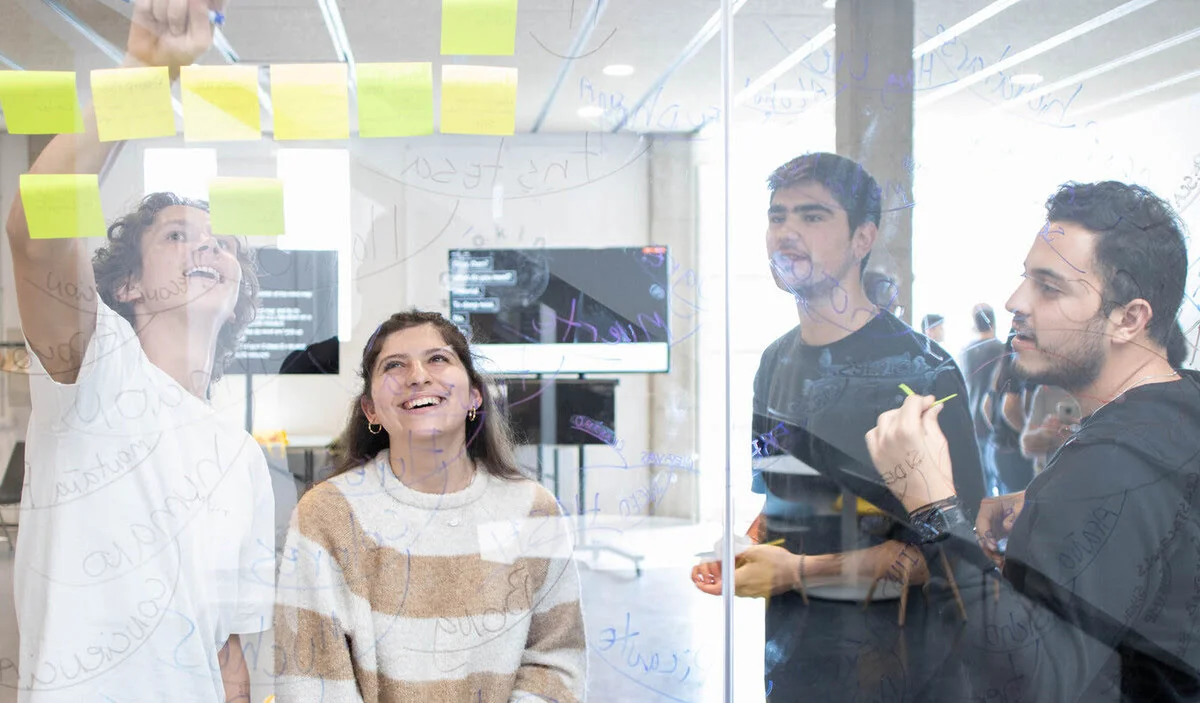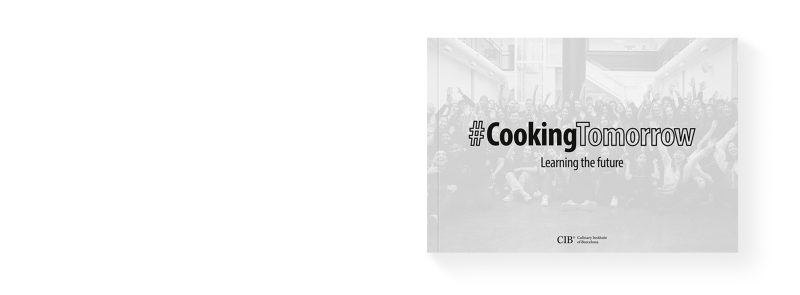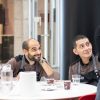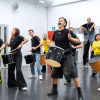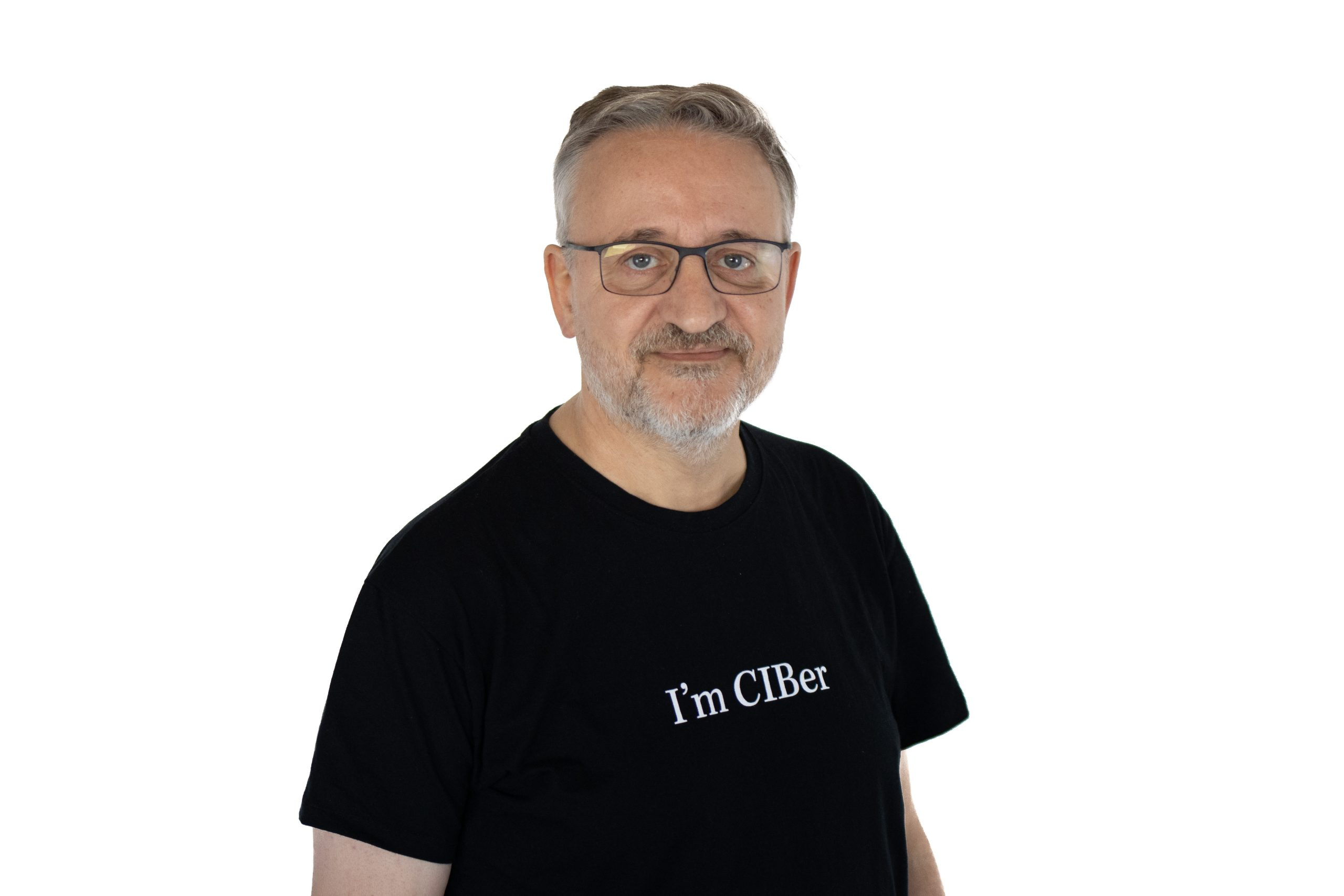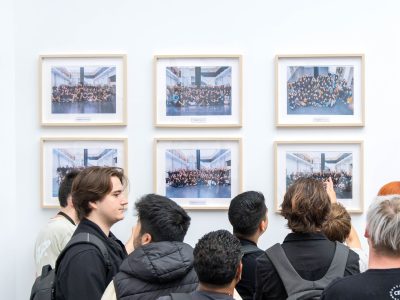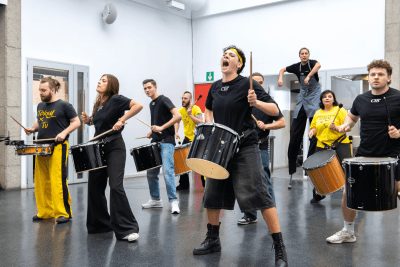At the Culinary Institute of Barcelona we live the pioneering experience of creating a new educational model through our own methodology, with the conviction that it will not be an easy or always successful path, but with the expectation that the methods and procedures will be adopted. in other educational centers and universities. Below are the different sections that make up the methodology, and make it so different.
1. Manifesto: from the traditional school to the new educational model
“We are born out of change and we keep changing endlessly. Who does not change, who does not evolve… teaching has to serve for that: to teach to evolve.
Society in general has an obsessive tendency to overvalue knowledge and persists to the point of frustration, putting pressure on young people in their studies without cultivating their values, abilities and possibilities. And, that is a big mistake.
Success is precisely in what we are capable of doing when knowledge, skills, attitudes and possibilities converge.
In most schools our young people are not valued in what they are really good at, but in what we hope they know. Skills such as imagination, creativity, eloquence and even intelligence (whoever doubts) are penalized. They are not motivated or trained towards innovation, but rather we train them from the past for the past, and not for the future.
We must teach to improve, to question, to imagine, to seek and find new possibilities, making use of our intellect, which is not exactly very rational, but absolutely emotional.
In traditional schools they are taught to know things and not to do things. They do not taught to love or survive, but to accept what is established, even though we know that what is established is ephemeral and even incorrect. At the CIB, we do not fall into that error. That is why we give so much importance to attitudes and we provide the student with a set of lateral skills that allow them to develop them.
Our obsession is to improve our teaching procedures so that our young people are able to overcome the scenarios of change, make them their own and know how to adapt to new circumstances with absolute naturalness. We must teach them to set, pursue and achieve goals, not to be afraid of making mistakes, because only those who are willing to make mistakes are capable of doing really wonderful things.”
Ferran Fisas, CIB’s President
2. Learning focus
The current models in education were created to be applied in the Industrial Revolution with the aim of creating useful workers and professionals for the needs of the 19th century. They have hardly changed since then. The Culinary Institute of Barcelona has proposed how to reinvent traditional learning and pedagogical models towards a new reality, and thus prepare its students to face any challenge of the present or future.
In this process, three main focuses were defined on the basis of which the entire teaching methodology of the school is developed: creativity, innovation and a look to the future.
Creativity
We believe that everything a student says and does is a proposal. Proposals are neither right nor wrong, but rather meet an objective or not. The important thing is to always define and show the objective, and make sure that it is met no matter how crazy the proposal is.
Innovation
We teach to think, to doubt, to try and make mistakes, to do what nobody did before.
Look to the Future
These changes are across the board. We must teach to observe, detect, appreciate changes and anticipate them.
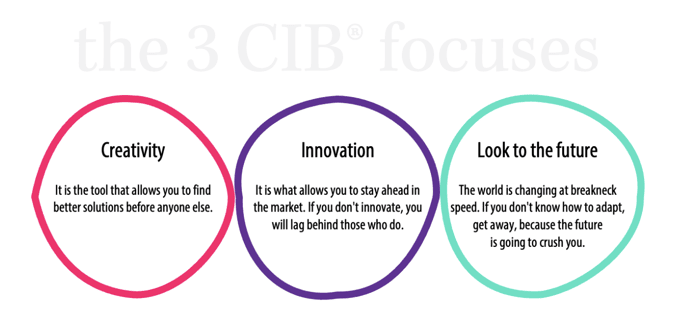
<< Learn more about how we apply these 3 focuses to our methodology >>
3. Learning Experience
At the CIB, is taught from emotion, and students are encouraged to experience learning with all their senses. It’s not wanted for students to perceive school as a building where you have to go to fulfill an obligation.
The CIB believes that schools must reinvent themselves and for this reason, its three founders wondered from the beginning what a school should be like. As a result of the research, it was concluded that the school must be the lever for the student’s personal development, an education based on competencies and that it must abandon the stigma of the temple of knowledge.
“Schools are not the temple of knowledge.Schools are the lever for personal development.”
The problem lies in the conception of the temple, which implies the vertical, asynchronous, unidirectional, dogmatic, and it must be changed to the horizontal, synchronous, multidirectional, based on doubt.
The CIB decided to design morphologically different spaces, to surprise the visitor, the student and the teacher alike, it is designed to provoke reactions. The industrial design of the classrooms are aligned with the learning experience for horizontal communication, with freedom and synchronous and multidirectional language between students and teachers.
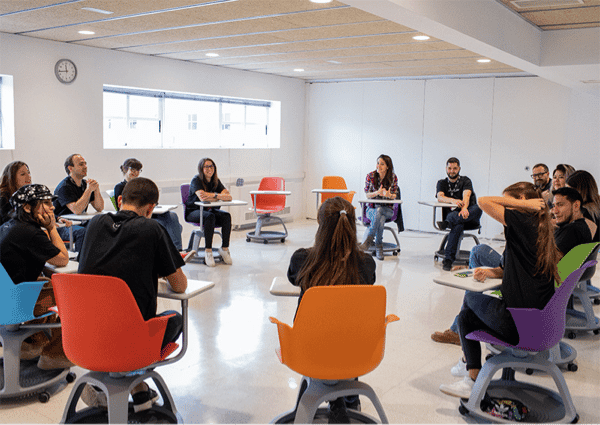
In such a volatile, changing, complex and uncertain environment (the already popular acronym VUCA), educational systems must reorient themselves towards the new reality and prepare students to face the multiple, constant and great paradigm shifts that will characterize the 21st century.
At the CIB we have practice scenarios (kitchens), demonstrative (theaters), active (active classroom), participatory (dynamic classrooms), autonomous work (workrooms), socialization (atrium), as well as outdoor scenarios through field work.
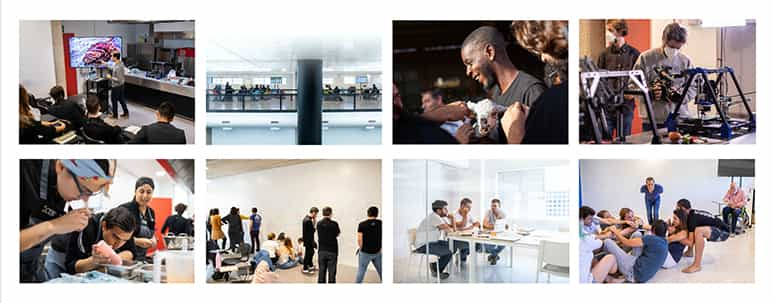
<< Learn more about how we apply these 3 focuses to our methodology >>
4. Learning Content
As much as we insist on acquiring knowledge, from our primary education to postgraduate and master’s degrees, the truth is that, in the real world, in the professional world, the people who are most successful and who prosper the most are not the ones who know the most, but the ones that best apply what they know.
In this knowledge to apply what is known, we use the same classification as Harvard Manage Mentor: for the development of himself, in the management of other people and in the management of business.
But it is not enough to have knowledge and skills for everything to flow correctly. The necessary attitudes are professional, social and leadership, those that allow you to move forward without discouragement and receive due recognition.

In order to access the opportunities of a world as changing as the present and the one to come, it is also necessary to have a high degree of self-knowledge and a great capacity to recognize the environment in order to identify and access these opportunities, and to objectively self-assess and thus acquire the necessary new knowledge, develop new skills and promote new or different attitudes.
Schools, traditionally, have only been concerned with transmitting the area of knowledge to their students and have forgotten to train them in the other three areas, which in the CIB we call Skills, Attitudes and Possibilities.
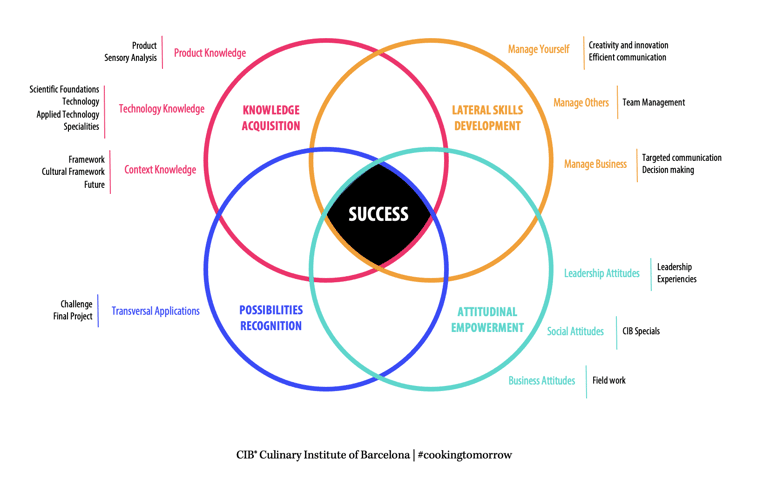
The excessive inflation of knowledge has led our society to create people who know a lot, but do not know how to apply knowledge properly since they have not been fully trained.
In 87% of cases, the reason for dismissal – for objective reasons, not economic – is not related to the knowledge of the individual. The cause is precisely in the realm of skills, attitudes or possibilities.
That is why we wonder if the right thing is being taught in schools.
Here we tell you how we make our content go beyond knowledge.
5. Learning Challenge
In traditional cooking schools, the ability of the student to replicate and know exactly parameters and values is valued through subjective indicators. At CIB we know that professional success doesn’t work this way because kitchens are fundamentally teamwork.
We judge the global results in the same way as in the company, and we reserve personal assessment for those cognitive and attitudinal skills that make the individual different. It is a cross-sectional and motivating evaluation that uses the challenge as an action framework for students to make their proposals for resolution.
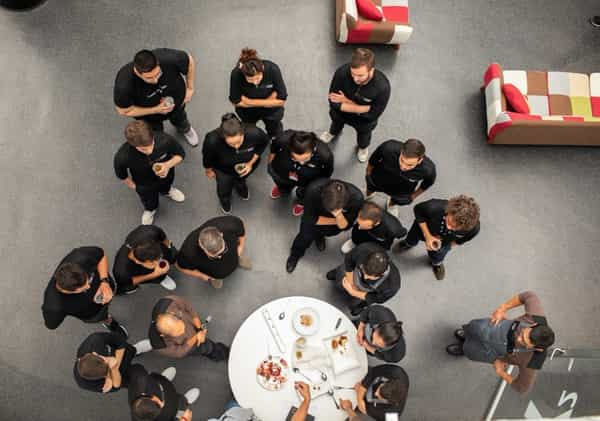
“Contrary to what many people think, academic ability is not synonymous with intelligence. We have become used to believing that a child who does not do well in school is not intelligent, when in fact he may be very talented and bright and creative. The problem is that in schools intelligence is not valued, but the ability to excel in certain subjects or subjects.” – Sir Ken Robinson
We hope that these tics and vices of the traditional school that are the maximum source of conflict and disagreement between evaluators and evaluated are not produced in the CIB, so we believe that any evaluation system should comply with four precepts:
How should the educational evaluation system be?
- The data collected must be true, demonstrable and easy to trace. The evaluated must know that they are evaluated, in what they are evaluated and how they are evaluated. And, it is their responsibility to leave a trace of it.
- The analysis of these data must be scrupulous and not be subject to subjective opinions, but to observations that are as binary as possible. The evaluator must conform exclusively to the evaluable criteria and in the terms established in the evaluation process, without any interference from other aspects that are not part of the process or the analysis.
- The result must be adjusted to a scale of indicators (rubric) that is useful for the evaluated. The evaluation function of the CIB must incorporate, in its result, a map or analysis of the strengths and weaknesses of the evaluated person.
- The rubric or gradation of each evaluated item must be proportional and congruent to the taxonomy of what is being evaluated. In this way, proportionality acquires two dimensions: an axis marked by the depth of achievement (taxonomy) and another by the scope of that achievement (rubric).
<<Discover how we manage to comply with these four precepts >>
6. Teachers
The new skills of the 21st century teacher require a permanent look to the future. We must stop insisting on replicating what happened in order to focus on showing the possibilities of the imminent and more distant future. Students must learn to look ahead so that when they exercise their professions they know how to face the future in the right direction.
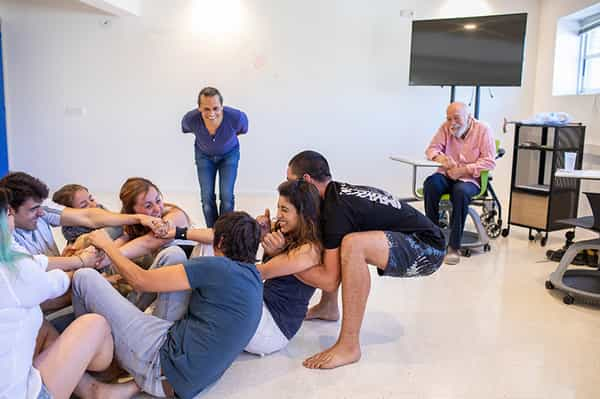
If we say that language has to be synchronous, horizontal and based on dialogue, teachers must enhance dialectical skills so that these conversations are, in addition to fluid, provoking other questions.
The way it is taught allows the active participation of the student and one of the best tools are the short exercises, either with live surveys, games or participatory canvases on paper or the blackboard, with markers or posters. Here the teacher must be prepared and willing to improvise this type of exercise permanently, guiding the participatory game.
The new tools, mainly those offered by the Internet, must be the technological domain of the teacher in the same way that books, chalk or the eraser of yesteryear were. Today pencils and pixels coexist in classrooms and, therefore, the teacher must be an expert in the use of both.
Today, pencils and pixels coexist in classrooms and the teacher has to be an expert in the use of both.

